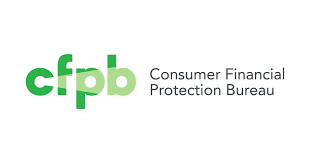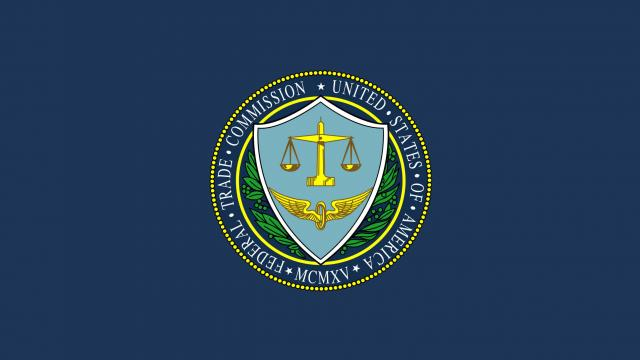April is recognized as National Financial Capability month to highlight the importance of trustworthy, accessible information for consumers making decisions about their financial lives, and the role of consumer education and robust consumer protections in improving the financial well-being of all Americans. Decisions like how to manage savings, access and use credit, and transact safely matter in Americans’ daily lives, and help to shape their financial futures. Financial capability is a key part of ensuring that American households can build financial security, take advantage of opportunities to reach their goals, and benefit from a stronger and more equitable economy.
FEATURED EVENT
Department of Veterans Affairs (VA) Outreach, Transition, and Economic Development (OTED) financial education webinar:
Inflation Risk - Protecting Your Retirement - April 24
Today’s economic landscape presents real challenges, especially when it comes to how inflation can affect your retirement plans. This session is designed to give you peace of mind and confidence, knowing you have a plan with actionable steps to take control of your financial well-being.
The Office of Financial Readiness, Department of Defense
The Department of Defense (Office of Financial Readiness, Office of Military Community and Family Policy, and the Military Services) provides information on the fundamentals of financial literacy with the aim of increasing the economic security of service members, their spouses and their families.

Consumer Financial Protection Bureau
Your Money, Your Goals Financial Empowerment Materials
Your Money, Your Goals is a set of financial empowerment materials for organizations that help people meet their financial goals by increasing their knowledge, skills, and resources. Whether you’re helping people get a job, find a place to live, or deal with a legal problem, money always comes up. You can use these tools to start the conversation. The suite of materials includes the Your Money, Your Goals Toolkit, booklets to help talk about money, companion guides, and a number of online resources.
Resources in multiple languages
People with limited English proficiency sometimes struggle to understand financial documents and contracts written originally in English. To increase accessibility of financial information and to help the people better understand their options when they make money choices, the Consumer Financial Protection Bureau has enhanced its glossaries of translated financial words and terms.
One of the challenges is that many of the technical terms commonly used in the U.S. financial system either do not have equivalent terms in non-English languages or have translations that are confusing. The goal of the glossaries is to ensure there’s consistency in translated consumer education materials.
You can find additional resources in Arabic, Chinese, Haitian Creole, Korean, Russian, Spanish, Tagalog and Vietnamese.

The Office of the Comptroller of the Currency
Financial Literacy Update: Second Quarter 2024. The Office of the Comptroller of the Currency’s (OCC) Financial Literacy Update is a quarterly e-newsletter that lists events, initiatives, and other resources offered by the OCC and other government agencies and organizations. The Financial Literacy Update provides brief descriptions for upcoming events in chronological order and initiatives and resources.
The March 2024 edition of the Community Developments Fact Sheet explains how financial capability programs can help people make informed financial decisions.

The Administration for Children & Families, Department of Health and Human Services
Conversations about money and finances are often seen as inappropriate, and many families hold high levels of mistrust in financial institutions due to systemic barriers and community exploitation.
The session Navigating Conversations with Families About Money offers Head Start program staff strategies for engaging families in conversations about money in ways that are rooted in dignity and respect.

National Credit Union Administration
The NCUA’s Financial Literacy & Education Resource Center includes resources and tools from other federal agencies and stakeholders that can assist credit unions in developing or improving their own personal finance and financial literacy education programs. MyCreditUnion.gov, NCUA’s consumer website, has links to information on a variety of financial education resources, including such topics as saving and investing, homeownership, dealing with debt, preventing fraud, and planning for the unexpected.

Federal Trade Commission
Find consumer protection materials in 12 languages, from Amharic to Vietnamese – in addition to English and Spanish – to help you spot, avoid, and report scams and identity theft. The materials include free practical guidance on How to Avoid a Scam, What To Do if You Were Scammed – including how to try to get your money back, and How To Spot, Avoid, and Report Identity Theft in Your Language. Recent refugees and immigrants will find help spotting common scams in A Fraud Handbook. And, to help people who need information in print, you can order How To Avoid a Scam, Scams and Your Small Business, and How to Spot, Avoid, and Report Identity Theft in Your Language in print in Simplified Chinese, Korean, and Vietnamese, along with English and Spanish. Visit ftc.gov/bulkorder.
Report Fraud in Your Own Language
Tell your story online in English at ReportFraud.ftc.gov and in Spanish at ReporteFraude.ftc.gov. To report in other languages, call (877) 382-4357 and select option 3. You’ll be connected to an interpreter who’ll help you report the problem and give you next steps. Phone lines are open 9 am – 5 pm ET.
Report Identity Theft in Your Own Language
Report your experience in English at IdentityTheft.gov; in Spanish got to RobodeIdentidad.gov. To report in other languages, call (877) 438-4338 and select option 3 to talk with an interpreter who’ll help you report the problem in your language. Phone lines are open 9 am – 5 pm ET.
Whether you’re renting your first place to live, buying a car, applying for a job or mortgage, or looking for help dealing with debt, Money Matters has free tools and advice on how to spot, avoid, and report scams. The site includes articles, videos, graphics to share on social media, and PowerPoint presentations on topics from Credit Reports and to Borrowing and Debt.

Securities and Exchange Commission
The SEC’s Office of Investor Education and Advocacy offers free resources on Investor.gov for students, teachers, members of the military, older investors, and more.
- Use the Compound Interest Calculator on Investor.gov to see how your money can grow. Or use the Savings Goal Calculator to find out how much you need save over time to reach your financial goals.
- Learn how to protect yourself in our Investor Alerts and Bulletins. Read our most recent alerts on investment scams where fraudsters use official-looking forms to try to establish credibility with targets and how scammers are using Artificial Intelligence (AI) in investment fraud.
- Test your investing knowledge with our April Investor Education Quiz. You can explore past quizzes too.
- Before you invest, research the background and registration status of any investment professional you’re considering working with on Investor.gov. And use the EDGAR (Electronic Data Gathering, Analysis, and Retrieval) system to research any public company’s financial information and operations by reviewing the filings the company makes with the SEC.
The US Department of Veterans Affairs
The US Department of Veterans Affairs (VA) Outreach, Transition, and Economic Development (OTED) has partnered with Prudential Financial to offer Veterans, transitioning Service members (TSMs), spouses, their family members, and caregivers, the opportunity to participate in the Wellness Wednesday Financial Educational series. The series is designed to address financial literacy gaps across the military and Veteran community and is comprised of two programs, 1) an online website portal that contains a roster of financial literacy information and resources available at www.prudential.com/Veteran, and, 2) the Wellness Wednesday Financial education series, offered the 3rd Wednesday of every month that focuses on a variety of topics such as: 1) purchasing a home; 2) paying for college; 3) planning for retirement; and 4) learning the building blocks of how to save, budget, and make a return on investments.


